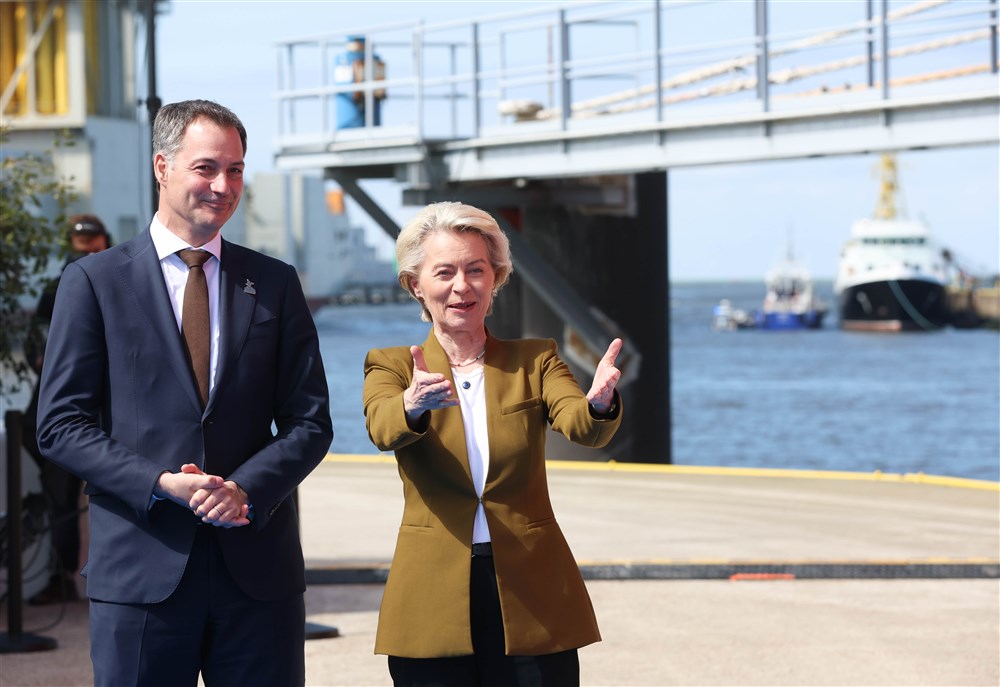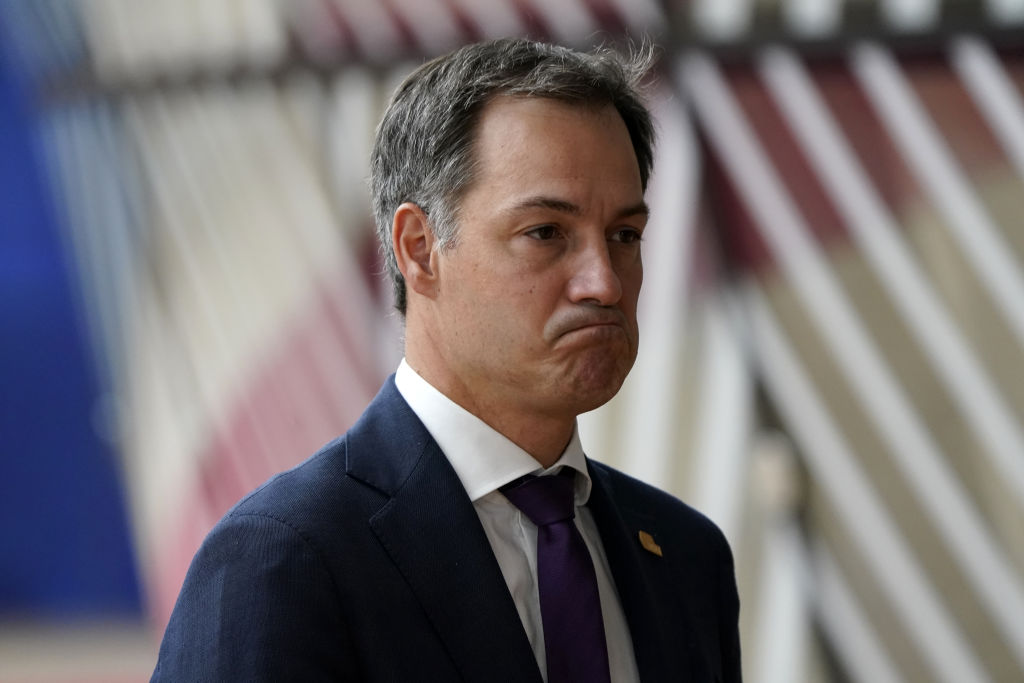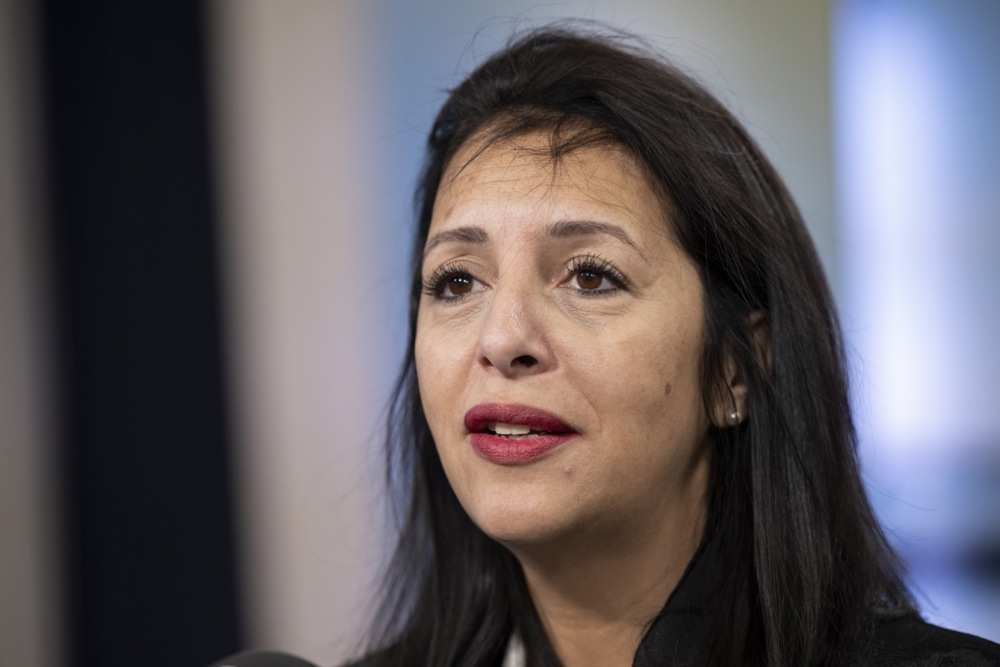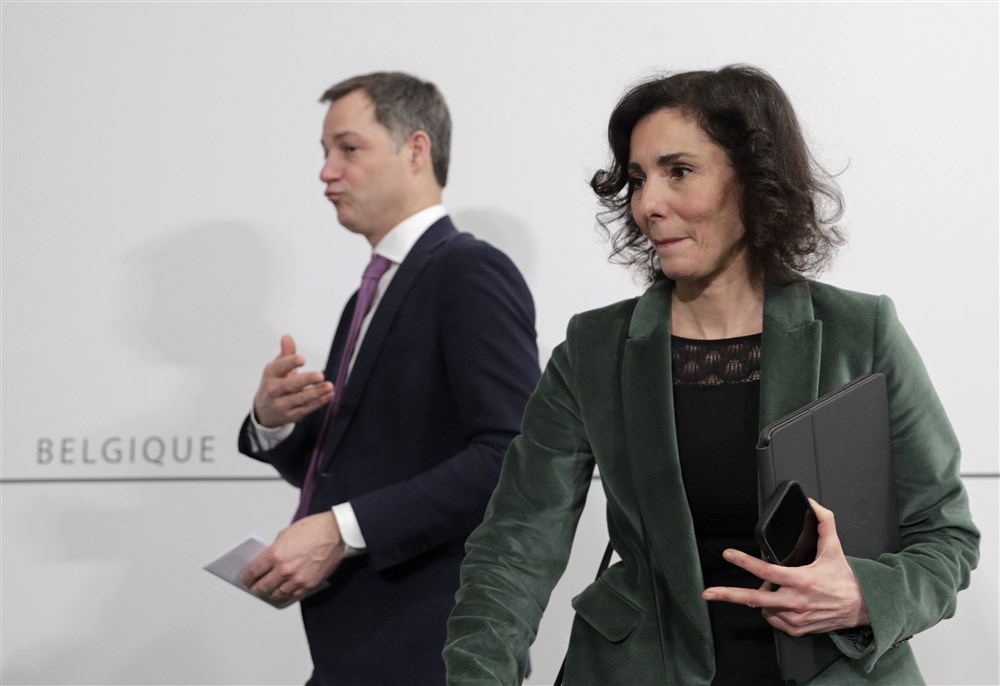Belgian Prime Minister Alexander De Croo says the EU needs a bigger budget, a call that has been interpreted as paving the way for direct taxation by Brussels.
De Croo, one of the bloc’s key leaders since his country took over the rotating EU Presidency, says the EU cannot keep up with increasing demands for funding and so needs to open a debate on “where the money comes from”.
The call was quickly rejected by those who oppose handing more power to Brussels, with one politician speculating that the Belgian Prime Minister is boasting of his pro-EU credentials in the hope of landing a top EU post in the reshuffle expected later this year.
European citizens are looking to the EU to “solve every major challenge we face, because countries alone cannot do it”, De Croo said in an interview. “If you want to answer those calls, you’re going to have to rearrange your priorities, which for us inevitably leads to a discussion: Where does the money come from?”
EU capitals “find it difficult to raise their own national contributions, but understand that asking Europe to pay more while refusing to do so themselves poses a dilemma” he reportedly said.
Anneleen Van Bossuyt, an MP with Belgium’s centre-right N-VA party and a former MEP, told Brussels Signal De Croo’s sentiments were “worrisome, to say the least, especially if you know how the current budget is being spent”.
She pointed out that 40 per cent of the current budget goes on agriculture and a third on regional and cohesion funds. “This is not the place where the EU offers much added value,” she said.
“Rather than looking where to find extra money for the EU, we should re-evaluate what we are already spending,” she said, adding that new taxes were not the answer.
MEP Tom Vandendriessche, of the Identity and Democracy Group, was equally dismissive, saying in a statement: “This EU is completely derailing, and De Croo is adding to this with his proposal.
“This is something we never signed up for. More EU taxes? Read my lips. No new taxes!”
He claimed De Croo’s comments were made in the light of what he said were the Prime Minister’s ambitions of landing a top international top job when he steps down, possibly after national elections.
De Croo’s Liberal party colleague and arch-federalist Guy Verhofstadt on the other hand embraced the idea of securing more money for the EU, saying the bloc needed its own resources.
Indeed, need to finance EU totally differently: new own resources democratically decided instead of contributions by MS & veto’s !
?? presidency + ?? election campaign the moment to finally start debate on such a reform… through a Convention
Put your money where your mouth is… https://t.co/VJ3s8lOAPM
— Guy Verhofstadt (@guyverhofstadt) January 3, 2024
Vandendriessche countered: “Once upon a time, the European Union was a positive economic co-operation between sovereign Member States.
“From that, Euro-fanatics like Verhofstadt want to turn it into a federal EU superstate that can decide independently of Member States and over the heads of our citizens, complete with its own taxes and army.”
Van Bossuyt noted: “There is a reason all the European treaties demand unanimity [on taxation] and that is why Guy Verhofstadt wants to end that requirement.
“But my party and I strongly oppose the end of unanimity. This will not bring Europe close to the people.
“Rather than looking for more money, De Croo should look what the real priorities are, where the added value can be created.”
EU leaders are negotiating a budget for the period between 2021 and 2027. The European Commission wants €66 billion more money on the grounds that a series of crises has depleted the foreseen funds. A number of Member States are resisting.
Van Bossuyt suggested Europe could be of more use in tackling problems regarding asylum and migration, energy, climate and security. “Those are the directions we should go to, that’s where the money should go,” she said.
She added that she believed De Croo’s proposals highlighted two issues. First, that Belgium was a split country, with Dutch-speaking Flanders wanting to be frugal with public funds, much like other northern Member States, whereas French-speaking Wallonia spends public money without much care, more akin to some southern Member States. She said it also illustrated the extent to which the left-wing Walloons set the tone in Belgian politics: opting for new taxes, apparently without much opposition from De Croo’s party.
The Belgium Prime Minister’s sentiments come at a time when his own Government is unable to appoint a new head of the nation’s Central Bank due to political infighting.
That is a “highly unusual situation”, according to the Bank, which is part of the European System of Central Banks responsible for implementing monetary policy in the euro area.
The plea for more money follows the EU’s failed attempt to find an agreement on an extra €50 billion in financial aid for Ukraine, with Hungarian Prime Minister Viktor Orbán proving the main roadblock.





